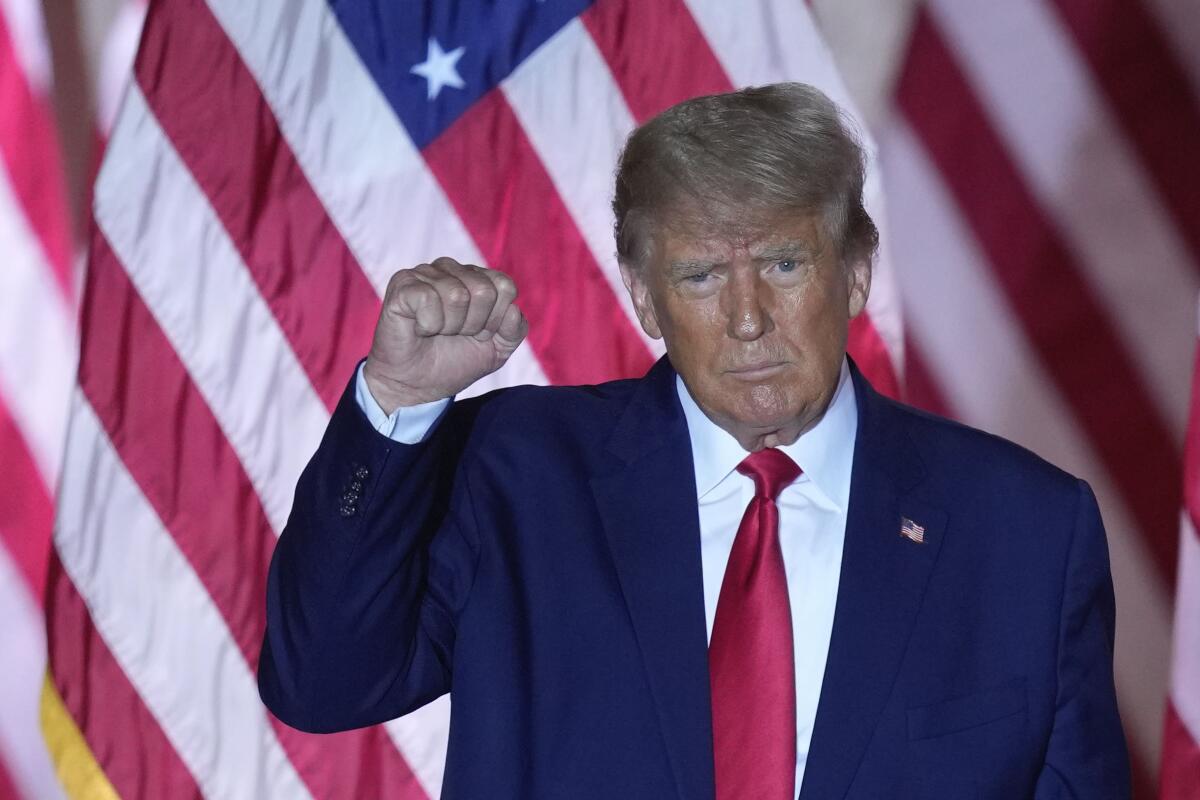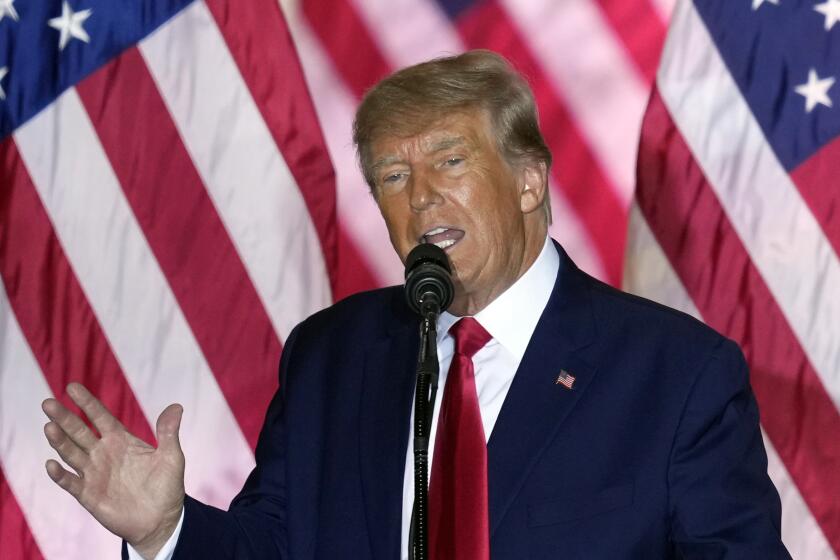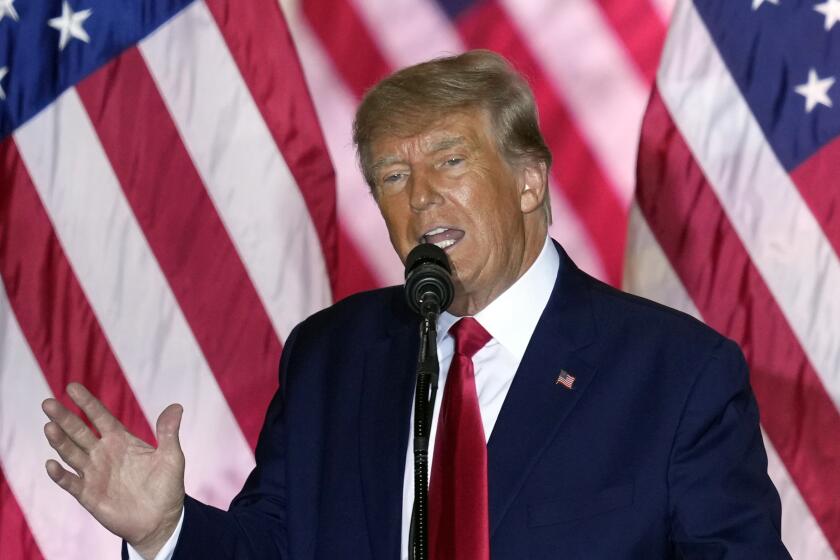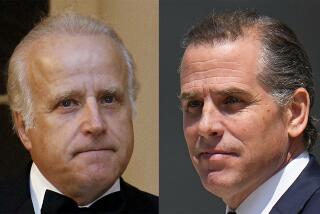Trump among five targets as Jan. 6 panel weighs criminal referrals

- Share via
The House Jan. 6 committee is considering criminal referrals against former President Trump, his White House Chief of Staff Mark Meadows and at least three other key allies involved in his efforts to overturn the 2020 election, a person familiar with the matter said Thursday.
The referrals have been suggested by a subcommittee of the panel and have not officially been approved by the full committee. They also include Trump’s unofficial former legal advisor John Eastman, Trump’s former lawyer and ex-New York Mayor Rudolph W. Giuliani, and former Justice Department official Jeffrey Clark.
The source, who asked not to be identified while discussing information not yet made public by the panel, didn’t specify what criminal counts might be referred against Trump or the other four. It wasn’t clear whether more people might be targeted for criminal referrals.
Representatives for each of the five men didn’t immediately reply to requests for comment. CNN earlier reported on the potential referrals.
Such referrals would be recommendations, and the Department of Justice or other agencies would not be legally bound to follow through on them.
Lawyers for former President Trump found at least two items marked classified during a search and gave them to the FBI, the Washington Post reports.
Weekend Meeting
Rep. Bennie Thompson, the Mississippi Democrat who chairs the committee, said that members planned to meet virtually over the weekend and that he expected decisions to be made then.
Rep. Jamie Raskin, a Maryland Democrat on the committee and on the subcommittee considering referrals, refused to reveal the targets being considered. But he told reporters at the Capitol: “We want to make sure no one slips through the cracks.”
“We want to make sure that the key organizers and movers of this attack don’t escape the scrutiny of the justice system,” he said. “I think anyone who engages in criminal actions needs to be held accountable for them, and we’re going to spell that out.”
Thompson also declined to comment Thursday when asked who was being considered for recommended charges. He said the committee was considering action against fellow members of Congress, though not necessarily criminal referrals.
That could include referrals to the House or Senate ethics committees or state bar associations, or civil suits.
The panel is working to complete a final report on last year’s assault on the Capitol by Trump supporters, who were seeking to prevent the certification of Joe Biden’s victory in the 2020 presidential election. The committee tentatively plans to release the report on Dec. 21.
Two corporate entities at the Trump Organization are found guilty on all 17 counts, including conspiracy charges and falsifying business records. Trump was not on trial.
The panel has focused on Clark’s role within the Justice Department during the end of the Trump administration, in conjunction with efforts by Eastman, Giuliani and Meadows, to persuade Georgia and other states to use “fake electors” for Trump, instead of electors based on Biden’s victories in those states.
There have been public indications that the Justice Department is well underway in its own scrutiny of Clark. His mobile phone and other electronic equipment were seized by federal agents in a June search of his home.
The committee claimed in a March legal filing in federal court in Santa Ana that “evidence and information available to the committee establishes a good-faith belief that Mr. Trump and others may have engaged in criminal and/or fraudulent acts,” and that Eastman’s “legal assistance was used in furtherance of those activities.”
Judge David O. Carter of the Central District of California issued a finding that month that said: “Based on the evidence, the Court finds it more likely than not that President Trump corruptly attempted to obstruct the Joint Session of Congress on January 6, 2021.”
Carter also found that Trump, Eastman and others had “entered into an agreement to defraud the United States by interfering with the election certification process,” and that Trump and members of his campaign had “engaged in common law fraud in connection with their efforts to overturn the 2020 election results.”
His findings were not binding.
The House previously voted to hold Meadows in criminal contempt of Congress for his refusal to adequately comply with a committee subpoena. It referred the matter to the Justice Department for prosecution, but the agency has declined to do so.
More to Read
Get the L.A. Times Politics newsletter
Deeply reported insights into legislation, politics and policy from Sacramento, Washington and beyond. In your inbox twice per week.
You may occasionally receive promotional content from the Los Angeles Times.












